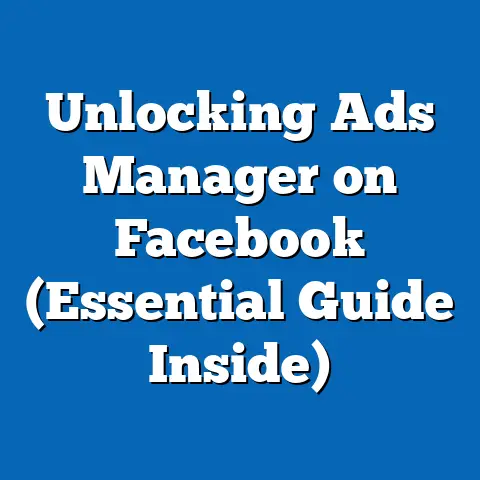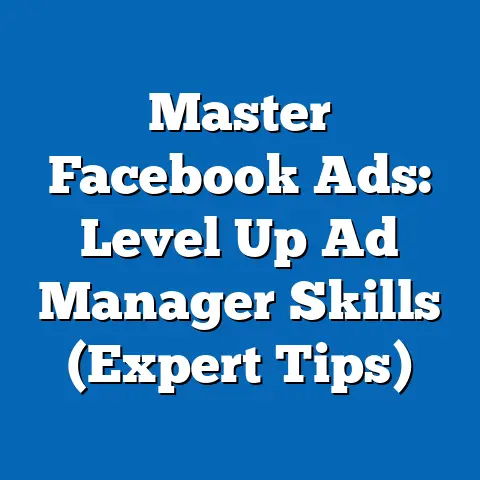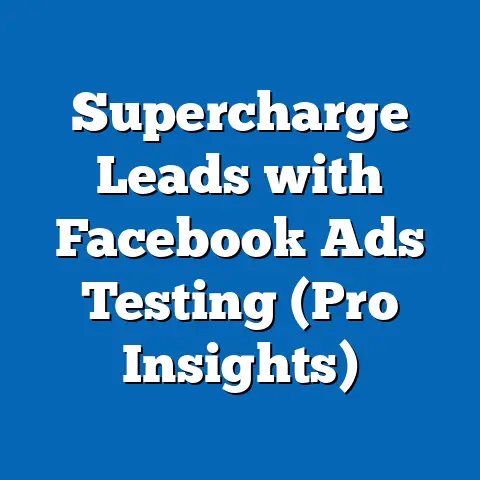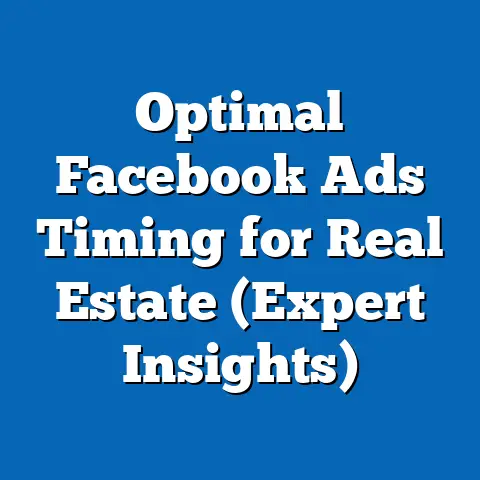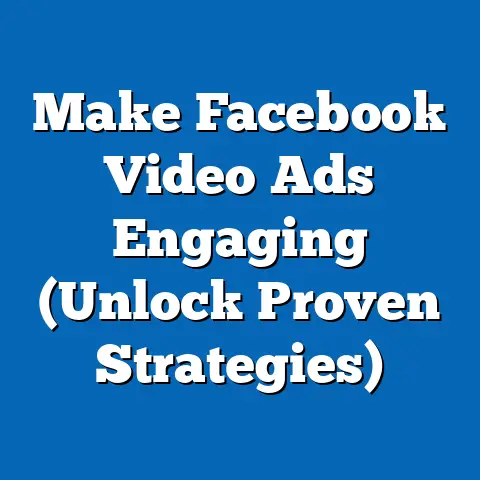Are Facebook Ads Legit? (Uncover the Truth)
Are Facebook Ads Legit? Uncover the Truth
Remember Jordan Belfort, the “Wolf of Wall Street,” promising you’d be swimming in cash if you just invested in his penny stocks? That scene, with its over-the-top promises, always comes to mind when I think about the initial allure of Facebook ads. They dangle the promise of incredible ROI, laser-targeted audiences, and explosive growth – a digital gold rush, if you will. But are Facebook ads a legitimate and effective marketing tool, or are they just another exaggerated promise in the digital marketing landscape?
The Mechanics of Facebook Ads
Let’s start with the nuts and bolts. How do Facebook ads actually work? It’s more than just throwing up a picture and hoping for the best. There’s a whole ecosystem at play.
First, there’s the ad creation process. Using Facebook Ads Manager (which I find surprisingly user-friendly once you get the hang of it), you choose your objective (awareness, traffic, engagement, leads, sales), define your target audience, set your budget, and design your ad.
But the real magic (or perhaps the cause for concern, depending on your perspective) lies in the targeting options. Facebook’s data collection is extensive. They know your age, gender, location, interests, behaviors, education, relationship status – practically everything you willingly (or unwillingly) share on the platform. This allows advertisers to get incredibly granular with their targeting. You can target people who like specific pages, have certain job titles, or even recently purchased a specific product.
Once your ad is live, Facebook’s algorithm takes over. It analyzes your ad and your target audience, then decides who to show your ad to and when. This is where bidding comes in. You bid against other advertisers to have your ad shown to your target audience. The algorithm considers your bid, ad quality, and relevance to determine the winner.
Facebook offers a variety of ad formats:
- Image Ads: Simple and effective for showcasing products or services.
- Video Ads: Engaging and ideal for storytelling or demonstrations. Video ads are HUGE right now, and I’ve seen them perform incredibly well for clients in the e-commerce space.
- Carousel Ads: Allow you to display multiple images or videos in a single ad, perfect for showcasing a range of products or features.
- Slideshow Ads: Combine images and text to create a visually appealing ad.
- Collection Ads: Designed for e-commerce, allowing users to browse and purchase products directly from the ad.
- Lead Ads: Collect leads directly from Facebook without sending users to a landing page. These are fantastic for building your email list.
According to Statista, Facebook’s ad revenue reached nearly $116 billion in 2022. This massive figure underscores the platform’s dominance in the digital advertising landscape. However, it also highlights the competition advertisers face.
The power of Facebook ads lies in their ability to reach a massive audience with laser precision. However, that power comes with responsibility. It’s crucial to use these tools ethically and responsibly, respecting user privacy and avoiding manipulative tactics.
Key Takeaway: Facebook ads operate through a complex system of targeting, bidding, and algorithms. Their effectiveness hinges on understanding these mechanics and using them ethically and strategically.
Success Stories
Now, let’s move on to the good stuff – the success stories. I’ve seen firsthand how Facebook ads can transform businesses. Here are a few real-life examples:
- E-commerce Brand: A small online clothing boutique struggled to gain traction. After implementing a targeted Facebook ad campaign, focusing on their ideal customer persona (young women interested in sustainable fashion), they saw a 300% increase in website traffic and a 150% boost in sales within three months. Their ROAS (Return on Ad Spend) was a healthy 4:1.
- Local Restaurant: A family-owned restaurant wanted to increase foot traffic. They ran a Facebook ad campaign targeting local residents with special offers and mouthwatering photos of their dishes. Within weeks, they saw a significant increase in reservations and walk-in customers. They also used Facebook ads to promote live music nights, further boosting their popularity.
- Non-Profit Organization: A local animal shelter used Facebook ads to raise awareness about their adoption program. They ran a campaign featuring heartwarming photos and videos of their adoptable animals, targeting animal lovers in the area. The campaign resulted in a surge in adoption applications and donations.
These are just a few examples of how Facebook ads can drive real results. But what makes these campaigns successful? It often boils down to a few key factors:
- Clear Objectives: Knowing exactly what you want to achieve (e.g., increase sales, generate leads, raise awareness) is crucial.
- Targeted Audience: Identifying your ideal customer and targeting your ads accordingly.
- Compelling Creative: Using high-quality images or videos that grab attention and resonate with your target audience.
- Strong Call-to-Action: Telling people exactly what you want them to do (e.g., “Shop Now,” “Learn More,” “Donate”).
- Continuous Optimization: Monitoring your ad performance and making adjustments as needed.
I’ve also seen businesses leverage Facebook ads for brand building. One of my clients, a local bakery, uses Facebook ads to share behind-the-scenes content, showcase their baking process, and highlight their community involvement. This not only drives sales but also builds a loyal following.
Key Takeaway: Facebook ads can be incredibly effective when used strategically. By setting clear objectives, targeting the right audience, creating compelling creative, and continuously optimizing your campaigns, you can achieve significant results.
Common Pitfalls and Challenges
Now, let’s talk about the dark side. Facebook ads aren’t always sunshine and rainbows. There are plenty of pitfalls and challenges to be aware of.
- Ad Fatigue: Showing the same ad to the same audience repeatedly can lead to ad fatigue. People become blind to your ad, and your performance declines. To combat this, it’s important to refresh your creative regularly and experiment with different ad formats.
- Rising Costs: As more businesses flock to Facebook ads, the competition increases, driving up ad costs. To stay ahead of the curve, you need to constantly optimize your campaigns and find ways to lower your cost per acquisition (CPA).
- Targeting Mistakes: Incorrectly targeting your audience can lead to wasted ad spend. It’s crucial to thoroughly research your target audience and use Facebook’s targeting options wisely.
- Complex Metrics: Facebook Ads Manager provides a wealth of data, but it can be overwhelming. It’s important to understand which metrics are most important for your business and focus on tracking those.
- Privacy Concerns: Growing privacy concerns and regulatory changes (like GDPR) are impacting Facebook’s advertising model. Advertisers need to be transparent about their data collection practices and respect user privacy.
I’ve seen businesses lose money on Facebook ads due to a lack of understanding of the platform. One of my clients, a startup, launched a Facebook ad campaign without properly defining their target audience. They ended up spending a significant amount of money on ads that were shown to the wrong people, resulting in minimal ROI.
Another common mistake is neglecting to monitor ad performance. Many businesses set up their campaigns and then forget about them. This can lead to wasted ad spend and missed opportunities for optimization.
Key Takeaway: Facebook ads come with inherent risks and challenges. Ad fatigue, rising costs, targeting mistakes, complex metrics, and privacy concerns can all impact your success. It’s crucial to be aware of these pitfalls and take steps to mitigate them.
The Future of Facebook Ads
Looking ahead, what does the future hold for Facebook ads? The social media landscape is constantly evolving, and Facebook needs to adapt to stay relevant.
- Rise of Video Content: Video is becoming increasingly dominant on social media. Facebook is prioritizing video content, and video ads are likely to become even more important in the future.
- Influencer Collaborations: Influencer marketing is booming. Collaborating with influencers can help you reach a wider audience and build trust with potential customers.
- Augmented Reality (AR) Ads: AR ads are becoming more sophisticated. These ads allow users to interact with your products or services in a virtual environment, creating a more immersive experience.
- Privacy-Focused Advertising: As privacy concerns grow, Facebook is likely to introduce new privacy-focused advertising solutions. This could include features like differential privacy and federated learning.
- Metaverse Integration: As the metaverse evolves, Facebook (now Meta) is likely to integrate advertising into virtual worlds. This could open up new opportunities for brands to reach consumers in innovative ways.
I believe that the future of Facebook ads will be more personalized, immersive, and privacy-focused. Advertisers will need to be more creative and strategic to stand out from the crowd. They’ll also need to be more transparent about their data collection practices and respect user privacy.
The rise of new platforms like TikTok and the evolving digital landscape will also impact Facebook’s advertising model. Businesses will need to diversify their ad spend and explore new platforms to reach their target audience.
Key Takeaway: The future of Facebook ads is uncertain, but it’s likely to be more personalized, immersive, and privacy-focused. Advertisers need to adapt to these changes and explore new platforms to stay ahead of the curve.
Conclusion
So, are Facebook ads legit? The answer, as you might have guessed, is nuanced. Facebook ads can be a powerful tool for businesses of all sizes, but they’re not a magic bullet. They require careful planning, strategic execution, and continuous optimization.
While I’ve seen incredible success stories, I’ve also witnessed businesses struggle. The key is to understand the mechanics of the platform, avoid common pitfalls, and adapt to the ever-changing landscape.
As you consider your own experiences or perceptions about Facebook advertising, remember that the digital marketing landscape is constantly evolving. It’s crucial to stay informed, experiment with new strategies, and prioritize ethical practices.
And as for the future? Only time will tell how the digital advertising landscape will evolve, but one thing is certain: the need for effective and ethical advertising will remain paramount. Are Facebook ads the answer? That’s a question only you can answer for your business.

